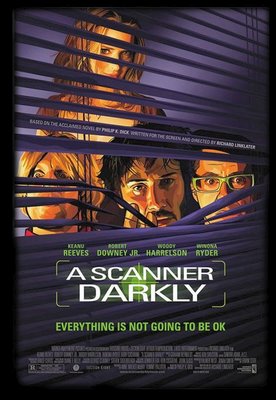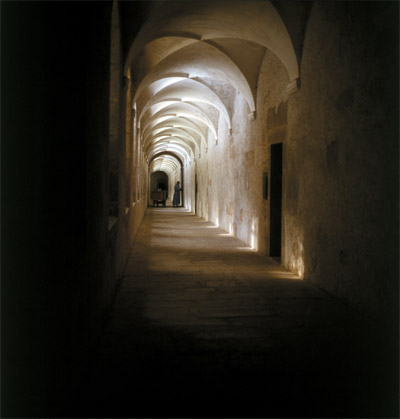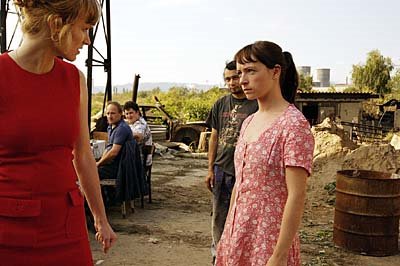 A Scanner Darkly, Richard Linklater 2006.
A Scanner Darkly, Richard Linklater 2006.Choosing to make a film that is based on a book, a semi-famous book at that, is always a risky proposition. As the director you've immediately put yourself into the unenviable position of trying to create a piece of work that will not only appeal to a general audience but will also appease those large segments of people who live, breathe, and love the piece of literature you are about to have the 'audacity' to meddle with.
And if only it was that simple. But things can be broken down a step further. There are those people who believe a film adaptation should be word for word, page for page verbatim to which the original literature piece the adaptation is based.
Personally I don't fall into that category. I believe that it is expected that a film will change, modify, and mold that beloved piece of literature into something new. Not only will you have envisioned things differently than the director, but despite some protest to the contrary, film is its own artistic medium and a director is bound to put his own artistic imprint on said piece.
So it is with this frame of mind I would walk into a film such as A Scanner Darkly. However, I personally haven't read Philip K. Dick's story that this film is based on, so if you are looking for any scoop on how accurate the film adaptation is you need read no longer.
The other much talked about aspect of this film is the choice to use the unique animation technique called rotoscoping. I personally have no issues with animation, sometimes even going so far as to be a proponent of the medium (Miyazaki's work would be a prime example). The animation is actually quite well done, my only complaint being that it seemed that the film occasionally lost some of its emotional impact due to the rotoscoping format. Actually I've not really decided whether or not it was the rotoscoping or simply how Linklater chose to utilize it that was the problem.
Either way the film is an enjoyable ride. Not much occurs through its duration other than talking. Think continual conversations such as the ones Samuel L. Jackson and John Travolta have in Pulp Fiction. Interesting, funny, but ultimately more shallow than it would like to appear.
And I think that's what really got me about the film. Maybe I've been spoiled after such a great piece of filmmaking like Bladerunner, but there just doesn't seem to be anything anchoring this particular film to the ground. When I saw Bladerunner I was left thinking about it for days. Contemplating everything from the cool set design to some of the interesting issues the film touches upon. It also made me go and read Philip K. Dick's orginal story.
As much as I would like too, I can't say the same thing about A Scanner Darkly. The film has some great scenes and great moments ultimately it fell short of the expectations I had set for it. Perhaps I was asking for too much. It's fun and generally entertaining, but don't expect too much.
**and a half stars.









